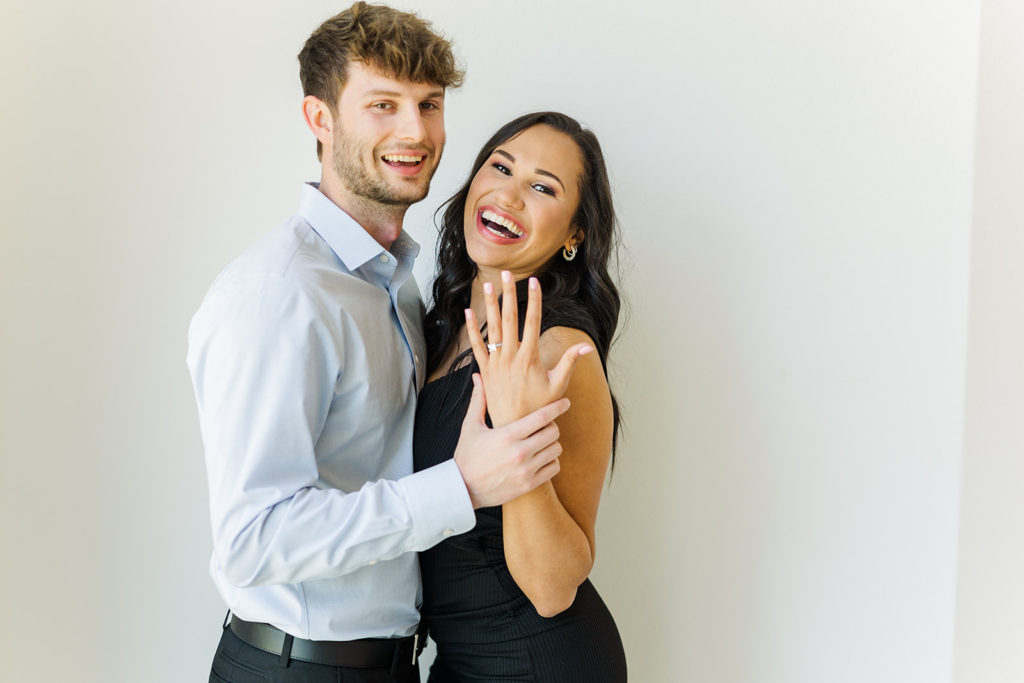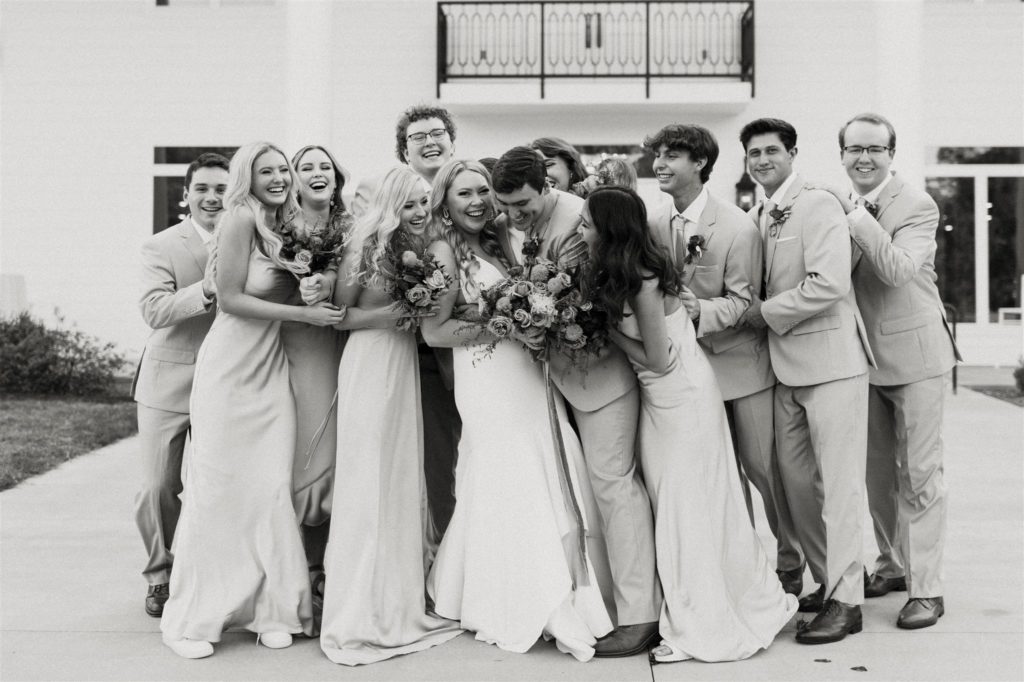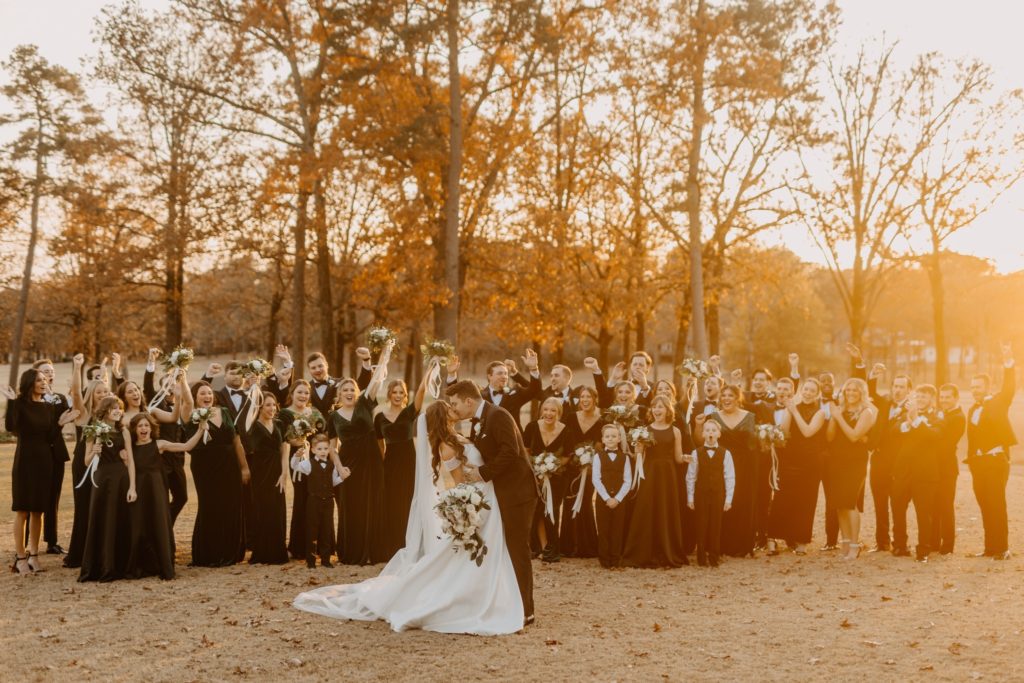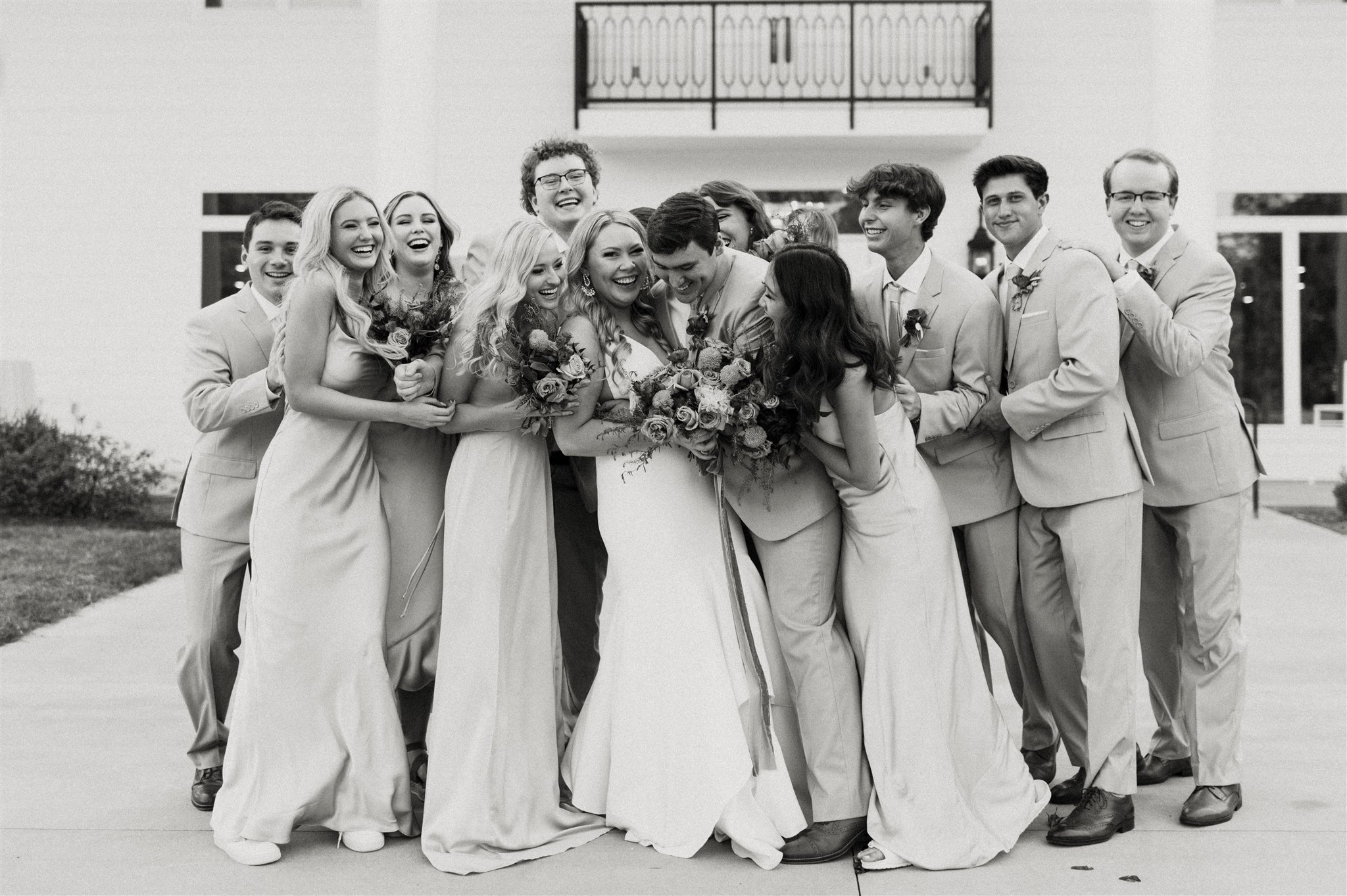You might be wondering, what are the wedding roles and responsibilities and who is in charge of what? It can all be a bit overwhelming, especially when we factor in different family and friend relationships. We’re all human so it can be tricky, but we have outlined the standard wedding roles below to take out the guesswork!
Keep in mind, it is ultimately your day and you can do whatever you want, even if it’s not the standard tradition. Use these as guidelines and make your day perfect for you!
And, if you aren’t one who just loves to read, scroll down for a quick bulleted list.

Couple
Obviously the most important of the wedding roles and responsibilities, the couple does have the vast majority of tasks, but as you’ll see with all of the roles listed, there is a lot of support for them!
The couple needs to set a wedding budget, choose a date, and select vendors. They will need to choose their wedding party along with attire for themselves and their attendants. They will design the wedding (often with help from a wedding planner!) and choose things like linens, stationery, florals, and more.
For the ceremony they need to meet with an officiant and write their own vows, if they wish. They will also need to purchase wedding bands.
On the day of the event, their only task is to have fun and enjoy the best day of their lives!
Parents
Traditionally parents have paid for the wedding, but this has evolved over the years as we’ve also seen where the couple pays for a portion of the wedding, too. While the bride’s parents do often cover the bulk of the wedding day expenses, there are some expenses that if going off tradition, the groom’s parents would be responsible for.
If going based on tradition, the grooms parents would be responsible for the rehearsal dinner, the ceremony flowers (bridal bouquet, corsages, boutonnieres, etc.), bartending, grooms attire, groomsmen gifts, the honeymoon, getaway car, the marriage license, and officiant.
Parents may also be asked to give a speech at the rehearsal dinner or wedding as well as walk the bride down the aisle.

Maid or Matron of Honor
This is typically the bride’s sister or a close friend. The maid or matron (if they are married) of honor helps the bride with everything from choosing her dress to helping coordinate all the dresses for the bridesmaids. They also take the lead for planning the bridal shower and bachelorette party. However, they can (and should!) get help from the bridesmaids on these events as well. The maid or matron also gives a toast at the wedding and helps the bride with her dress and bouquet throughout the wedding and reception.
Bridesmaids
Bridesmaids have less responsibility than the maid or matron, but they are still there to support the bride. They should attend the bridal shower and bachelorette party if they are able to. They should also assist the maid or matron with planning events so all the work/spending isn’t solely on one person. On the wedding day they will likely get their hair and makeup done and spend time with the bride. Along with the groomsmen, they should get the party started at the reception!
Best Man
The best man is the counterpart to the maid or matron of honor. Similarly he is often a brother or close friend of the groom and offers support to the groom throughout the planning process. He plans the bachelor party and also gives a toast at the wedding. Perhaps most importantly, the best man is responsible for the rings on the wedding day. He will keep them in a pocket and hand over to the officiant when it is time for the couple to exchange rings.
Groomsmen
The groomsmen don’t have a ton of responsibility, but they should support the groom like the best man does and attend the bachelor party. They are also responsible for getting their suits or tuxes. At the reception, typically they are the ones who get the party started!
Junior Bridesmaids or Junior Groomsmen
If you have family or close friends who are not yet old enough to be a bridesmaid or groomsmen, but are too old to be a flower girl or ring bearer, you can provide them with the title of Junior Bridesmaid or Junior Groomsmen. Their role is simple as they will get to be a part of the processional on the wedding day and can stand with the wedding party or have a designated row during the ceremony.
And, if you are not having ushers or attendants, they can also help manage the guestbook or help pass out items for your grand exit.

The House Party
If you are someone who has a large family or a large group of friends, you may find yourself wanting to have a house party. Asking someone to be apart of your house party is similar to asking them to be a bridesmaid. The house party gets to participate in the rehearsal dinner, bachelorette party, wedding showers, and even photos on the day of the wedding. However, they do not stand up at the altar with you. They can be part of the processional or they can be pre-seated on a designated row.
The house party on the wedding day is there to help the bride and groom with any wedding to-do’s during the day. They can also help manage the guestbook and pass out programs.
Ushers
Ushers can be close friends or even family of the couple. We’ve also seen where groomsmen serve as the ushers for the wedding day. The role of ushers on wedding day is to help people know where to sit and escort anyone who needs assistant to a seat.
Flower Girl
The flower girl is customarily a niece of the couple or a young child of a friend. They often throw flower petals as they walk down the aisle directly before the bride. While traditionally a child, we’ve even seen grandmas play this role which is a fun twist!
Ring Bearer
Similar to the flower girl, the ring bearer is often a nephew of the couple or a young child of a friend. While ring bearer’s used to physically carry the rings up the aisle, we recommend they just carry a pillow without the actual rings for safety. No one wants the rings to get lost or dropped! Sometimes they carry fun signs such as “here comes the bride”.
Couple
- Decide wedding budget (with family, if necessary)
- Determine approximate guest count
- Choose a date
- Select vendors
- Choose wedding party
- Decide on wedding design
- Write vows
- Decide on wedding attire
- Purchase wedding bands
- Get marriage license
- And, the list could go on…
Parents
- Decide wedding budget, if paying or helping pay
- Potentially give speeches at the rehearsal dinner or wedding
- If going off tradition, read the section about parents roles and responsibilities to see what the groom’s parents pay for
Maid/Matron of Honor and Best Man
- Coordinate a wedding shower (maid/matron)
- Plan bachelor/ette party
- Attend rehearsal and rehearsal dinner
- Potentially give speeches at rehearsal dinner or wedding
- Bride or Groom’s right-hand on the wedding day
- Get the party started at the reception
Bridesmaids and Groomsmen
- Support the bride and groom
- Attend bridal showers (bridesmaids)
- Assist Matron/Maid or Best Man with bachelor/ette duties
- Get the party started at the reception
Junior Bridesmaids and Junior Groomsmen
- Can help manage the guestbook
- Can help pass out wedding programs
The House Party
- Can help manage the guestbook
- Can help pass out wedding programs
Ushers
- Help greet guest and escort to seats
Flower Girl and Ring Bearer
- Throw petals prior to bride processing (flower girl)
- Hold a pillow or sign prior to bride processing (ring bearer)
Now that you’ve read through the wedding roles and responsibilities, happy planning! Be sure to use this as a guide, but keep your wedding true to you!
Wedding Roles and Responsibilities
